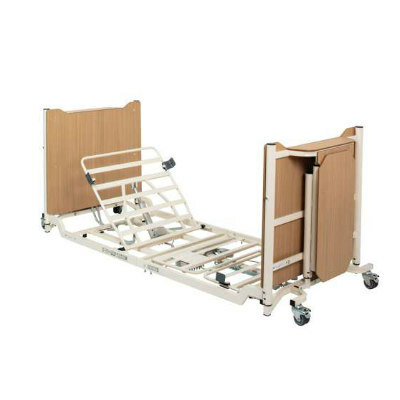Orthopedic Surgery Considered Safe for the Elderly
By HospiMedica International staff writers
Posted on 30 Jul 2014
A new study concludes that orthopedic procedures such as total knee replacement (TKR) and spinal fusion surgeries are beneficial for those 80 and older.Posted on 30 Jul 2014
Researchers at the State University of New York (SUNY; USA) and Nassau University Medical Center (East Meadow, NY, USA) analyzed data for patients aged 80 and older, and those aged 65-79, from the US Nationwide Inpatient Sample (NIS) between 2000 and 2009. Of the patients who were at least 80 years of age, 417,460 underwent TKR; 233,277 underwent total hip replacement (THR); and 70,203 underwent spinal fusion. In the 65-79 patient range, 1,868,983 underwent TKR; 768,999, THR; and, 522,369, spinal fusion.
The results showed increasing trends in the age-adjusted incidence of procedure rates per 100,000 patients, increasing from 40 to 102 for spinal fusion, 181 to 257 for THR, and 300 to 477 for TKR. Overall in-hospital complication rate remained stable over time for spinal fusion (from 17.5% to 16.1%) and TKR (from 9.9% to 9.1%), and increased for THR (from 9% to 10.3%). The majority of the procedures in those over 80 were performed in the 80-84 age group. The study was published on July 16, 2014, in the Journal of Bone and Joint Surgery.
“Despite stable or increased in-hospital complications, the in-hospital mortality rate decreased over time for all three procedures. I think this finding may reflect improvements in medical treatment for complications during the last decade,” said lead author orthopedic surgeon Hiroyuki Yoshihara, MD, PhD, of SUNY. “As life expectancy continues to increase, I hope that very elderly patients who have had inadequate results from exhaustive conservative treatment undergo the procedures and have better life quality.”
Although life expectancy continues to increase worldwide and advances occur in surgical techniques and medical treatment, the chronological age limit for patients to undergo elective major orthopedic procedures remains a controversial subject. Despite this controversy, the rates of elective major orthopedic surgical procedures in patients at least eighty years of age has increased in the US over the past decade.
Related Links:
State University of New York
Nassau University Medical Center












.jpg)

